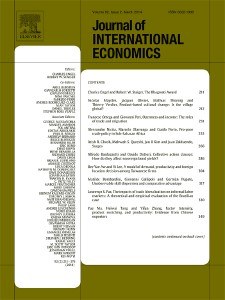
Beetsma, R. and Bovenberg, A. (1998). Monetary union without fiscal coordination may discipline policymakers Journal of International Economics, 45(2):239--258.
-
Affiliated author
-
Publication year1998
-
JournalJournal of International Economics
With benevolent policymakers and fiscal leadership, monetary unification reduces inflation, taxes, and public spending. These disciplining effects of a monetary union, which become stronger if the number of participants in the union increases, are likely to raise welfare. Two types of arrangements are considered for the union's common central bank (CCB): making the CCB more conservative and imposing an inflation target on the CCB. In contrast to the results of L. E. O. Svensson (1997), an optimally designed, conservative CCB may outperform inflation targeting. Finally, the authors find that fiscal coordination offsets the disciplining effects of monetary unification. Hence, subsidiarity in fiscal policymaking may enhance welfare.